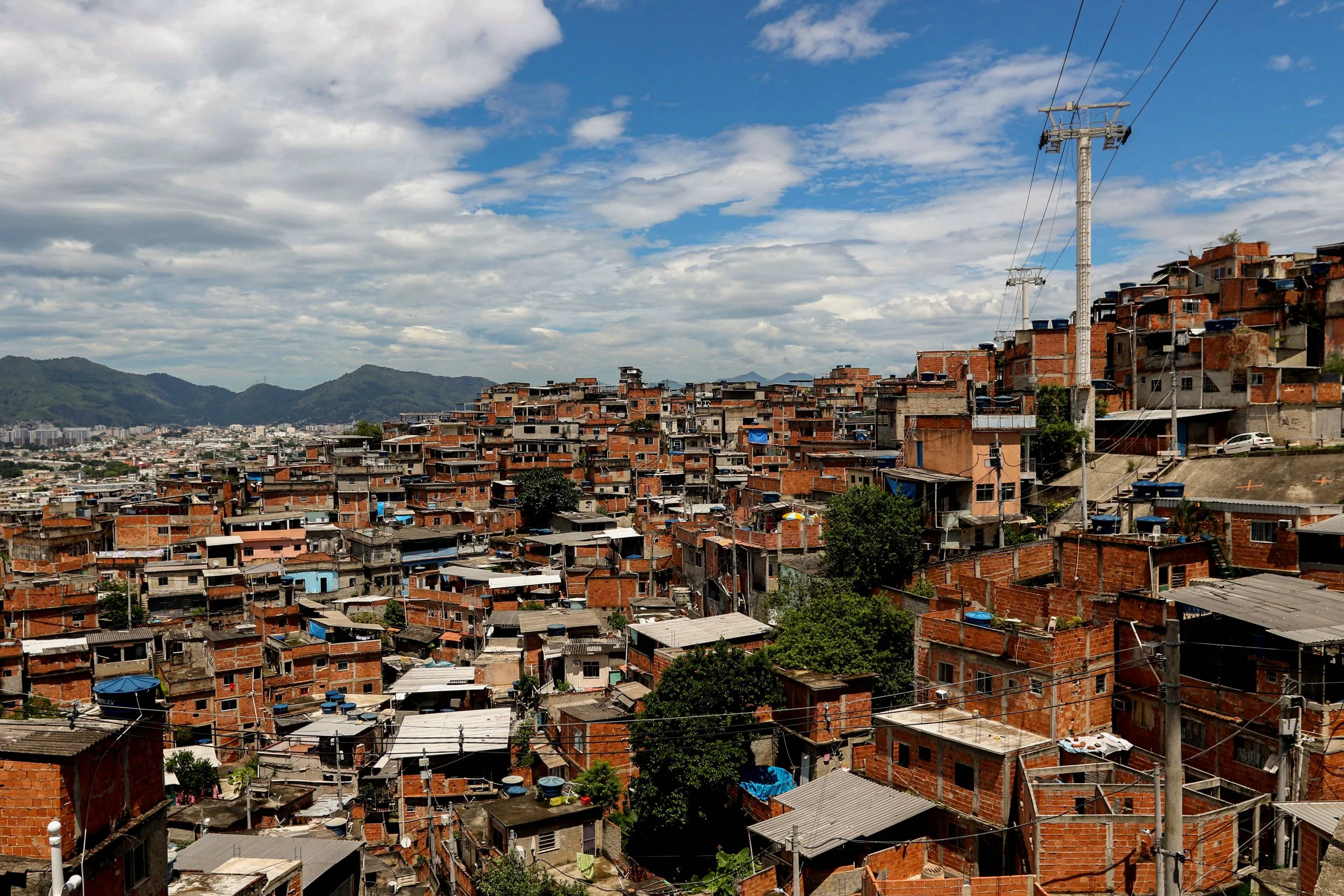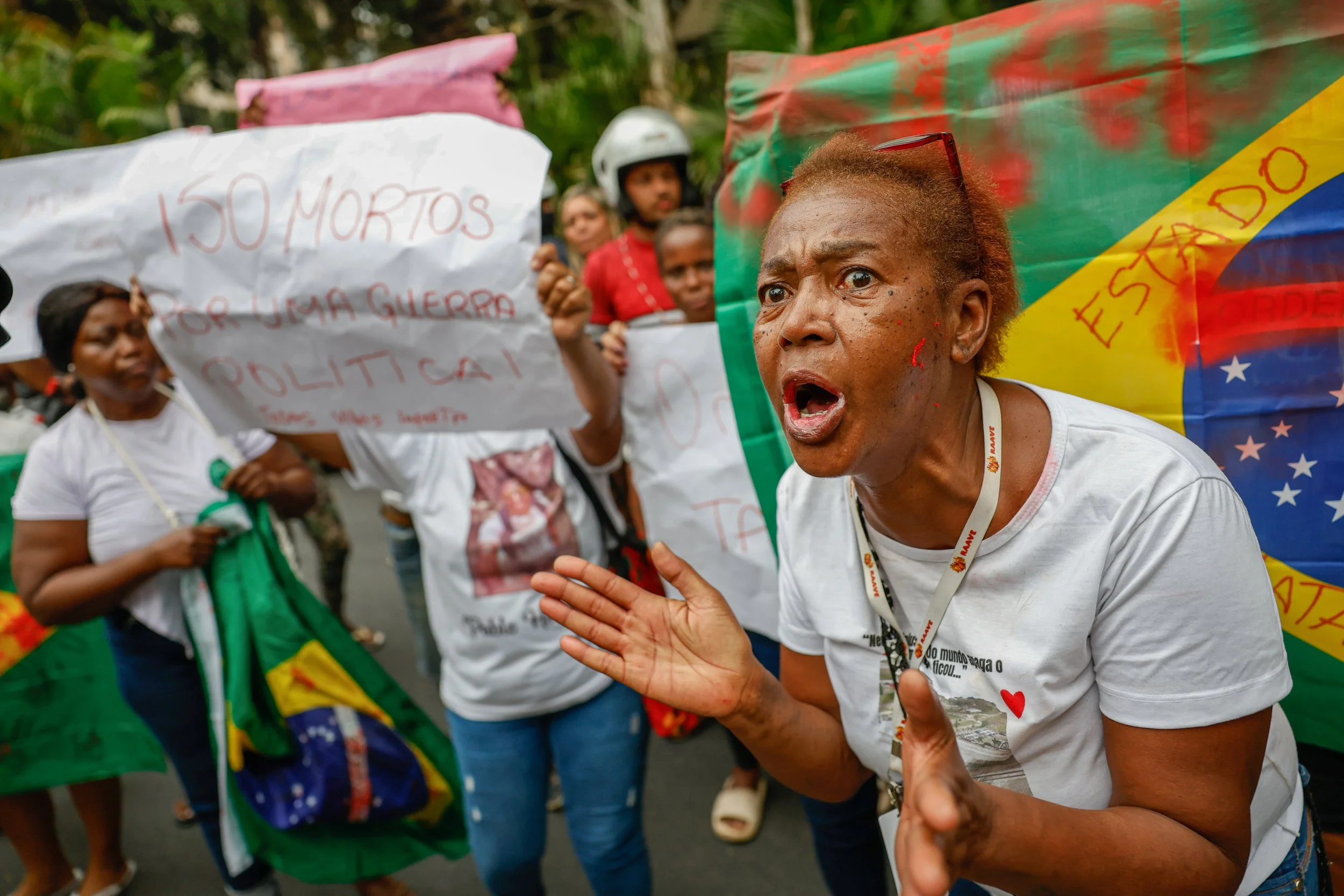The Operation in Rio: Geopolitics and possible alternatives
By Alberto Kopittke*
The motivations for the operation in Complexo do Alemão that occurred on November 28, resulting in the murder of 121 people, are much more related to international geopolitics than one might imagine. It is urgent that the federal government propose robust responses to this issue before it is too late.
In recent months, the Trump administration has publicly presented a reorientation in international policy, directing its gigantic war machine towards Latin America, under the pretext of combating what it calls narcoterrorism.
On January 20, 2025, Trump signed Executive Order 14157, which designated drug cartels and other organizations as Global Terrorist Organizations, opening the possibility for the US armed forces to act directly against these organizations.
On February 6, 2025, Secretary of State Marco Rubio determined that eight international drug trafficking organizations were to be considered terrorist organizations, especially from Central America and Venezuela, determining the start of operations by the US armed forces against these organizations. In May, a US delegation proposed to the Brazilian government the designation of the PCC and Comando Vermelho as terrorist organizations.
However, the Brazilian government, through Mario Sarrubo of the National Secretary of Public Security, stated: “We do not have terrorist organizations here; we have criminal organizations that have infiltrated society.” He also commented that Brazilian legislation defines terrorism in a restricted way, linked to religious or ideological motivations that act against the State.
At the same time, in March of this year, Federal Congressman Danilo Fortes filed a bill that classifies Brazilian gangs as terrorist organizations (Bill 1283/2025). On May 27, the Chamber of Deputies approved the request for urgently considering the proposed legislation with the signature of 333 congressional representatives, allowing it to go to a direct vote in an open session of the Congress. A day after the operation in the Complexo do Alemão, the administration of Governor Cláudio Castro (PL) announced that it had submitted a report to the US government detailing the activities of the Comando Vermelho, arguing that it should be classified as a terrorist organization and requesting assistance from the U.S. government.
On the same day, after the operation in the Complexo do Alemão, the governor of São Paulo announced that the State Secretary of Public Security of São Paulo, Guilherme Derrite, would be taking a leave of absence from the Secretariat to assume the rapporteurship of Bill 1283/2025 – a measure that attempts to shield the secretary from the fallout of one of the worst public security administrations in São Paulo, which disorganized the state's Military Police and saw its robbery rates skyrocket to an unprecedented level.
Immediately after the operation in the Complexo do Alemão, social media was flooded with videos associating the origin of the Comando Vermelho with left-wing organizations that fought against the military dictatorship and making inferences about the support of the PT and President Lula for these organizations, calling them narco-terrorists whose objective is to destroy the Brazilian State.
Over the past few months, governments ideologically aligned with Trump have been making moves to authorize the deployment to US bases and the direct action of US special forces in countries, such as Peru, Ecuador, and Argentina, in addition to the positioning of the US naval fleet off the coast of Venezuela under the pretext of combating drug trafficking.
At the same time, the US publicly announced the closure of bases in Eastern Europe, to redirect troops to Latin America, due to the new priorities of the US government, according to an official statement from the US Army.
Therefore, as can be seen, the events in the Complexo do Alemão are much more related to geopolitical movements than may be initially apparent.
How the US Could Help Combat Organized Crime
US support in combating international drug trafficking is very welcome, with concrete measures such as hindering money laundering and international arms trafficking, especially of rifles.
However, the measures adopted by the Trump administration in 2025 go in the opposite direction. Executive Order “Strengthening American Leadership in Digital Financial Technology” (EO 14178), which reduced the state's ability to track transactions in real time, creating an environment of greater financial anonymity, and the Executive Order “Ensuring Fair Banking Services for All Americans,” in which the government determined that banking regulators must remove reputational risk analysis from the criteria used to analyze bank account openings, ended up undermining compliance tools used to prevent money laundering. It also may facilitate the circulation of illicit financial resources from organizations, cartels, and drug trafficking networks in the world's largest financial market.
Regarding rifles, a study by the Intelligence Undersecretariat of the Rio de Janeiro Military Police revealed that 60% of the 638 rifles seized in 2024 by police in the state came from the United States, demonstrating how a US government strategy to combat international arms trafficking could assist Brazil and other Latin American countries.
The Brazilian Federal Government Needs to Act
On the other hand, Operation Hidden Carbon was carried out in Brazil, targeting the financial heart of the PCC (First Capital Command) in conjunction with fintechs and billion-dollar investment funds, conducted in partnership between the Public Prosecutor's Office of São Paulo and the Federal Police.
This operation demonstrated that Brazilian institutions have the necessary capacity to confront the country's criminal organizations. Furthermore, the country has a robust federal penitentiary system, including maximum security facilities, created during President Lula's first government, and a very strong Federal justice system so that the country can provide an effective response to these criminal organizations. However, despite the correct approach to confronting organized crime, the current federal government has lacked a sense of urgency regarding the issue of public security. In fact, criminal organizations have been growing and already exert armed control over 15% of the country's population. This is a critical situation that deserves much greater attention from the government, which has restricted its focus to the discussion of the so-called Security Amendment Bill (PEC da Segurança).
Although this constitutional amendment would be an important instrument to strengthen the integration of security forces, it faces a completely opposition in Congress and has ended up wasting the energy of the federal government over the last two years, leaving (once again) a void in an agenda that the far-right knows how to exploit very well.
Much can and needs to be done, even without the constitutional amendment. During Lula’s second term, for example, the country had the largest security plan in its history, with the National Program for Security with Citizenship (Pronasci), which provided resources and programs for integrated intervention in more than 120 areas affected by crime. At the same time, the Rio de Janeiro government, with federal support, implemented the Pacifying Police Units (UPPs), which had their limitations, but pointed to the possibility of a new type of strategy very different from the operation carried out in the Complexo da Alemão favela, and which effectively sought to remove armed groups from the area.
The fact is that Brazil needs a plan for Rio de Janeiro, a symbolic of national culture and which has in fact become, alongside São Paulo, a city wher. e organized crime is growing in strength.
Here are some practical suggestions that the federal government could take to address this issue in a robust and effective manner:
Create a community-based program model capable of dismantling the criminal governance of areas by factions while simultaneously providing real security for communities, involving policing resources, social policies (with task forces from federal programs, for example), urban planning, and municipal inspections, drawing on the positive and negative lessons learned from the UPPs, Territories of Peace, and Pacts for Peace.
Fund the reform of the prison system in Rio (and throughout Brazil) to meet the goals of the National Council of Justice's (CNJ) Fair Sentencing Program.
Establish a federal prison in Rio.
Increase the size of the federal police and deploy the necessary number of federal police officers for a robust and long-term plan in Rio, similar to Operation Hidden Carbon, but on a much larger scale, involving suppressing arms trafficking, the money laundering mechanisms of organized groups, and institutional corruption.
Create a National Anti-Rifle Strategy to combat international arms trafficking, involving ports, airports, and the intelligence of all security, justice, and armed forces institutions.
Create a National Violence Prevention System, with effective programs for families, schools, and young people, to be implemented in partnership with municipalities.
Create a permanent Integrated Security Cabinet among the federal, state, and local governments.
Approve the Constitutional Amendment Proposal on Security.
Approve the Anti-Mafia Package.
After 50 years of suffering from violence, Brazilian society understandably cries out for concrete and effective answers to the problem of public security. Furthermore, a more robust approach is urgently needed to block the geopolitical movement that has been underway, which uses this serious problem for other interests.
We have another chance; it's best not to waste it.
*Alberto Kopittke is a former director of the National Secretariat of Public Security and a member of the Brazilian Forum on Public Security.




